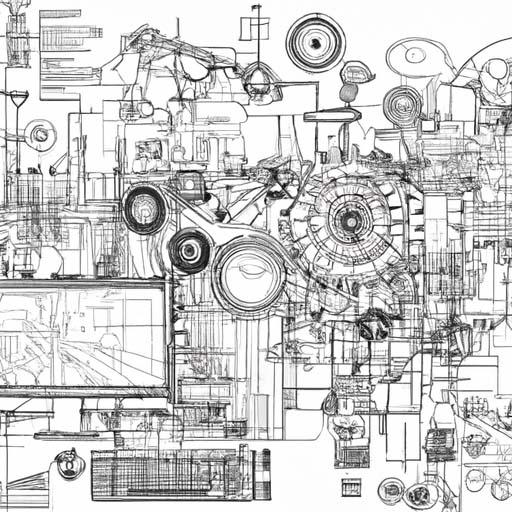Job Displacement Due to Automation – An Ethical Dilemma
Welcome to our analysis of the societal challenges posed by rapidly increasing workplace automation. In this article, we will delve into the ethical dilemma surrounding job displacement caused by automation and explore its impact on individuals, businesses, and society as a whole. As technological advancements continue to accelerate, it becomes imperative to critically examine the consequences of automation and address the ethical implications it raises.
The Rise of Automation
In recent years, automation has garnered significant attention across various industries. From manufacturing to customer service, advancements in technology have allowed businesses to streamline their operations, increase efficiency, and reduce costs. However, this technological progress comes at a cost – many jobs that were once performed by human workers are now being automated, leading to widespread concerns about job security and income inequality.
The Ethical Dilemma
Automation’s impact on employment poses an ethical dilemma that demands careful consideration. On one hand, automation offers undeniable benefits such as increased productivity and lowered labor costs. It enables businesses to deliver goods and services more efficiently, ultimately benefiting consumers. On the other hand, the displacement of human workers can lead to unemployment, financial hardship, and ultimately, societal unrest.
Dash – The question of who bears the responsibility for addressing the ethical concerns raised by automation remains a pressing issue. Employers must grapple with the decision to automate tasks that were previously performed by their workforce, potentially leading to job losses. Governments, too, face the challenge of designing policies that strike a balance between encouraging innovation and protecting workers’ livelihoods.
Impact on Individuals
Em Dash – For individuals whose jobs are at risk of being automated, the consequences can be significant. Employment provides more than just a source of income; it also contributes to one’s sense of identity, purpose, and overall well-being. Sudden job displacement can leave individuals grappling with feelings of despair, loss, and uncertainty about their future prospects. Additionally, retraining for new job opportunities may not always be feasible for everyone, especially those with limited resources or specialized skills.
Impact on Businesses
Semicolon – While automation offers businesses various benefits, it is not without consequences. Implementing automation technologies often requires significant financial investments, potentially creating a financial burden for smaller companies.
Moreover, businesses must also consider the impact automation has on their customers and public perception. If automation leads to widespread job losses and the erosion of local economies, it could negatively affect consumer demand and public trust in those companies.
Impact on Society
Parenthesis – The societal implications of widespread job displacement due to automation cannot be ignored. Income inequality may widen as high-skilled workers benefit from the automation advancements, while lower-skilled workers struggle to find new employment opportunities. Additionally, automation may lead to geographical disparities, with certain regions experiencing higher unemployment rates than others. These inequities can exacerbate societal divisions and contribute to social unrest.
As a society, we must grapple with the ethical dilemmas posed by automation. While embracing technological advancements is crucial for progress, we must also prioritize the well-being of individuals and the overall health of our communities. Efforts to retrain and reskill workers affected by automation, fostering innovation in new industries, and implementing supportive policies can help mitigate the negative impacts of job displacement. This requires collaboration between businesses, governments, and educational institutions to ensure a just and equitable transition in the face of automation.
In conclusion, the rapidly increasing workplace automation presents an ethical dilemma that necessitates thoughtful analysis and action. Balancing the benefits of automation with its potential negative impacts on individuals, businesses, and society calls for a comprehensive approach. By addressing the challenges posed by job displacement, we can strive towards a future where automation is harnessed responsibly, ensuring the well-being and prosperity of all.
